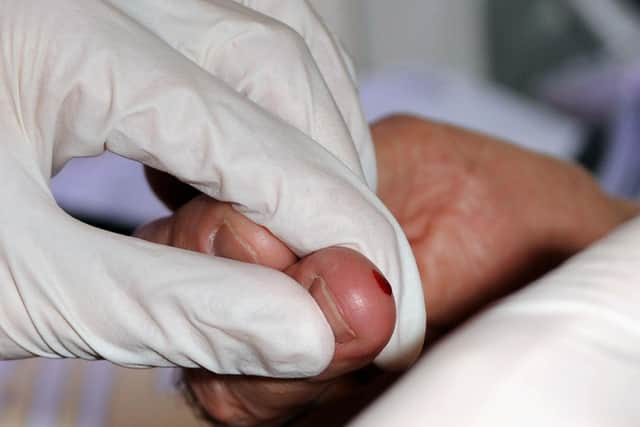Warning from health officials as acute cases of hepatitis identified in children in the UK and other countries
and live on Freeview channel 276
Last week, British officials reported 74 cases of hepatitis, or liver inflammation, found in children since January.
The usual viruses that cause infectious hepatitis were not seen in the cases, and scientists and doctors are considering other possible sources, including Covid-19, other viruses and environmental factors.
Advertisement
Hide AdAdvertisement
Hide AdIn a statement today, the European Centre for Disease Prevention and Control said additional cases of hepatitis had been identified in Denmark, Ireland, the Netherlands and Spain, without specifying exactly how many cases were found.


It said US officials spotted nine cases of acute hepatitis in Alabama in children aged one to six.
‘Mild hepatitis is very common in children following a range of viral infections, but what is being seen at the moment is quite different,’ said Graham Cooke, a professor of infectious diseases at Imperial College London.
Some of the cases in the UK have required specialist care at liver units and a few have needed a liver transplant.
Prof Cooke was not convinced Covid-19 was responsible.
Advertisement
Hide AdAdvertisement
Hide Ad‘If the hepatitis was a result of Covid it would be surprising not to see it more widely distributed across the country given the high prevalence of (Covid-19) at the moment,’ he said.
‘At present, the exact cause of hepatitis in these children remains unknown,’ the European CDC said.
UK scientists previously said one of the possible causes they were investigating were adenoviruses, a family of common viruses usually responsible for conditions like pink eye, a sore throat, or diarrhoea.
US authorities said the nine children with acute hepatitis in Alabama tested positive for adenovirus.
Advertisement
Hide AdAdvertisement
Hide AdSome doctors have noted that adenoviruses are so common in children that finding them in those with hepatitis does not necessarily mean the viruses are responsible for the liver disease.
British public health officials ruled out any links to Covid-19 vaccines, saying none of the affected children were vaccinated.
The World Health Organisation noted that although there has been an increase in adenovirus in Britain, which is spreading at the same time as Covid-19, the potential role of those viruses in triggering hepatitis is unclear.
Some of the children have tested positive for coronavirus, but the WHO said genetic analysis of the virus was needed to determine if there were any connections between the cases.
Advertisement
Hide AdAdvertisement
Hide AdIt said no other links had been found between the children in the UK and none had recently travelled internationally. Lab tests are also underway to determine if a chemical or toxin might be the cause.
The WHO said there were fewer than five possible cases in Ireland and three confirmed cases in Spain, in children aged 22 months to 13 years.
The UN health agency said that given the jump in cases and heightened surveillance, it is ‘very likely’ more cases will be detected before the cause of the outbreak is identified.
Short-term (acute) hepatitis often has no noticeable symptoms, so you may not realise you have it.
If symptoms do develop, they can include:
- muscle and joint pain
-a high temperature
- feeling and being sick
- feeling unusually tired all the time
- a general sense of feeling unwell
- loss of appetite
- tummy pain
- dark urine
- itchy skin
- yellowing of the eyes and skin (jaundice)
Comment Guidelines
National World encourages reader discussion on our stories. User feedback, insights and back-and-forth exchanges add a rich layer of context to reporting. Please review our Community Guidelines before commenting.
